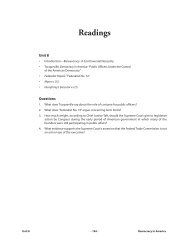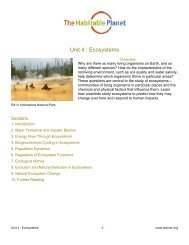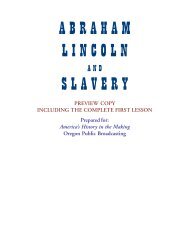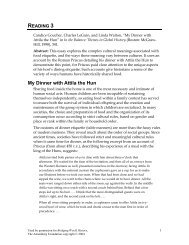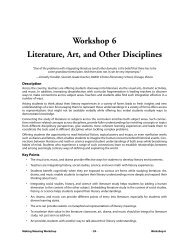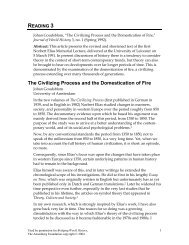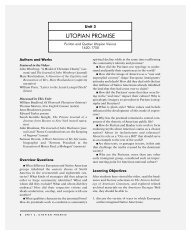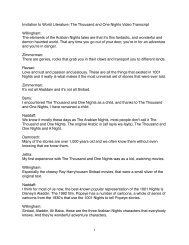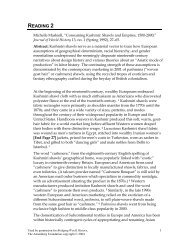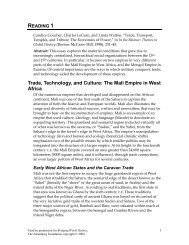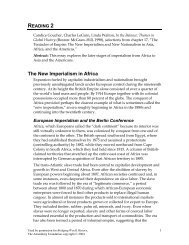Ethics Reader
Ethics Reader
Ethics Reader
You also want an ePaper? Increase the reach of your titles
YUMPU automatically turns print PDFs into web optimized ePapers that Google loves.
just man does not permit the several elements within him to interfere with one another, or<br />
any of them to do the work of others,—he sets in order his own inner life, and is his own<br />
master and his own law, and at peace with himself; and when he has bound together the<br />
three principles within him, which may be compared to the higher, lower, and middle notes<br />
of the scale, and the intermediate intervals—when he has bound all these together, and is no<br />
longer many, but has become one entirely temperate and perfectly adjusted nature, then he<br />
proceeds to act, if he has to act, whether in a matter of property, or in the treatment of the<br />
body, or in some affair of politics or private business; always thinking and calling that which<br />
preserves and co-operates with this harmonious condition, just and good action, and the<br />
knowledge which presides over it, wisdom, and that which at any time impairs this<br />
condition, he will call unjust action, and the opinion which presides over it ignorance.<br />
You have said the exact truth, Socrates.<br />
And if the nature of justice and injustice be known, then the meaning of acting unjustly and<br />
being unjust, or, again, of acting justly, will also be perfectly clear?<br />
What do you mean? he said.<br />
Why, I said, they are like disease and health; being in the soul just what disease and health are<br />
in the body.<br />
How so? he said.<br />
Why, I said, that which is healthy causes health, and that which is unhealthy causes disease. .<br />
. . And just actions cause justice, and unjust actions cause injustice? . . . And the creation of<br />
health is the institution of a natural order and government of one by another in the parts of<br />
the body; and the creation of disease is the production of a state of things at variance with<br />
this natural order?<br />
True.<br />
And is not the creation of justice the institution of a natural order and government of one by<br />
another in the parts of the soul, and the creation of injustice the production of a state of<br />
things at variance with the natural order?<br />
Exactly so, he said.<br />
Then virtue is the health and beauty and well-being of the soul, and vice the disease and<br />
weakness and deformity of the same? . . . And do not good practices lead to virtue, and evil<br />
practices to vice?<br />
Assuredly.<br />
Still our old question of the comparative advantage of justice and injustice has not been<br />
answered: Which is the more profitable, to be just and act justly and practise virtue, whether<br />
seen or unseen of gods and men, or to be unjust and act unjustly, if only unpunished and<br />
unreformed?<br />
Page 39



